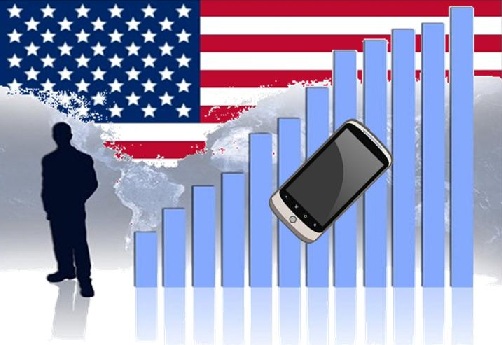US mobile commerce set for strong growth
Internet Retailer, a market research and strategic analysis firm, has released data that suggests mobile commerce in the U.S. will see strong growth by the end of 2013. The data shows that 500 of the largest mobile commerce businesses in the country have been reporting strong results over the past several quarters. More consumers are showing interest in mobile payments as the services available to them find alternatives to NFC technology and become more secure.
Data estimates 71% growth in mobile sales
According to the data from Internet Retailer, mobile commerce in the U.S. could grow by 63% by the end of the year. Mobile sales processed by the country’s top mobile commerce companies are expected to jump 71% by the end of 2013, surpassing $30 billion. E-commerce giant eBay is expected to see mobile sales rise above $8.8 billion as more consumers opt to shop from their mobile devices than on PCs or in physical stores.
 Retailers begin taking mobile commerce more seriously
Retailers begin taking mobile commerce more seriously
Retailers around the world are beginning to understand that the mobile space is not something to be ignored. Mobile commerce is not simply a passing trend and consumers are not likely to give up shopping on their smartphones and tablets any time soon. Retailers that are slow to embrace mobile commerce could be missing out on a significant opportunity and run the risk of being left behind by consumers that are demanding better mobile services. Companies like eBay and Amazon have shown just how beneficial a focus on the mobile sector can be.
Security remains a top concern for many consumers
Mobile commerce has grown significantly in a few short years, but the sector is still in a state of infancy. While many consumers have shown interest in mobile payments, many more have expressed concern regarding the security of their financial information. Security concerns have been enough to keep people away from mobile commerce platforms regardless of the security features that these platforms boast of.
Mobile payments initiative meets success
Homeland Stores, a regional supermarket grocery chain based in the U.S., has concluded a pilot program for its mobile payments initiative. The SwiftScan program, as it is called, was initially launched in June of this year and was meant to demonstrate the benefits of mobile payments in the retail sector. The technology for the retailer’s mobile payments platform comes from Double Beam, which has significant experience in the mobile commerce sector.
Application uses QR codes as alternative to NFC
The SwiftScan application is meant to allow users to pay for groceries using their smartphones. The application functions in the same way that typical mobile payments services do, facilitating transactions through the use of authentication systems designed to verify the identity of its user. SwiftScan also makes use of QR codes, which are becoming a relatively common mobile commerce tool. The codes are typically seen only in marketing, but have been gaining traction in the mobile payments sector as an alternative to NFC technology.
 Retailer to expand availability of mobile payments app
Retailer to expand availability of mobile payments app
The pilot program took place at 20 of Homeland Stores’ locations. The program has been considered a success, which means the retailer will be expanding the availability of its mobile payments application to 26 additional locations by the end of October. The company notes that consumers have responded very well to the application and the services it provides, providing the retail with sufficient encouragement to continue pursuing mobile payments aggressively.
Mobile commerce continues to gain ground with retailers
Mobile payments services are becoming more common among retailers as consumers begin showing more favor for mobile commerce in general. Technology and financial firms like Google and PayPal are not the only ones offering mobile commerce platforms to consumers. Retailers are developing their own platforms in the hopes of establishing a strong presence in the mobile payments field. Thus far, few retailers have been able to accomplish this goal, but the mobile commerce field is still relatively young.
 Retailers begin taking mobile commerce more seriously
Retailers begin taking mobile commerce more seriously
 Retailer to expand availability of mobile payments app
Retailer to expand availability of mobile payments app